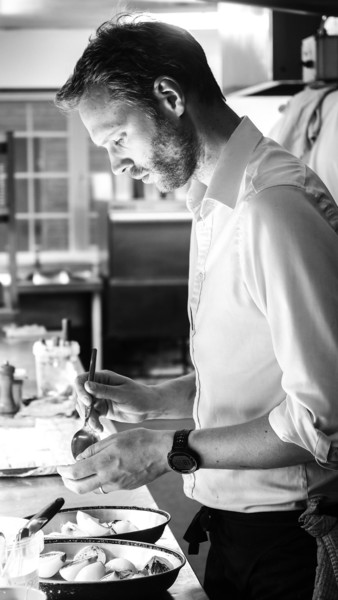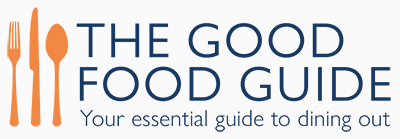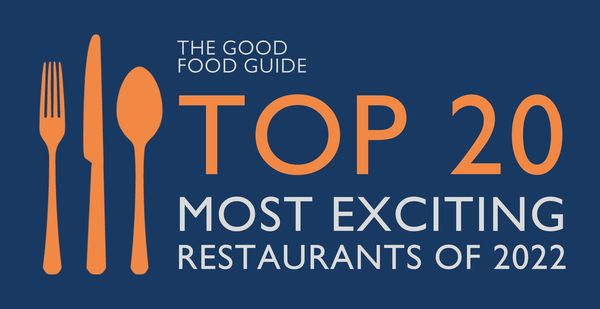To try to end the ceaseless drip feed of negativity, I’ve logged out of social media accounts and closed tabs from news outlets on my phone. Unfortunately, as the owner of a restaurant, there are several other sources I can’t ignore: invoices; monthly energy statements; my bank account and so on. Much like the headlines and my Twitter feed, these also make for grim reading.
I don’t mean to be too down on things because it is not all bad - restaurants are busy and this year is a whole lot better than the last two. But I do think there seems to be a collective delusion that the pandemic and its aftershocks are totally over - that life is back to normal and we can all carry on our merry way just as things were at the end of 2019. This was symbolised in the most egregious fashion when, on April 1 this year, the VAT rate applied to hospitality reverted back to the pre-pandemic level of 20 per cent. After two years of welcome and necessary assistance, the messaging from the government was clear: ‘We’ve done our job, you’re on your own now.’
Even prior to the lockdowns of 2020, hospitality businesses were being squeezed from several angles. For years we’ve swallowed costs, trimmed margins, slimmed payroll and shortened menus. We’ve turned to less glamorous ingredients and used skill and knowledge to turn them into dishes that people will pay money for. If anything, the pandemic highlighted the resilience and innovation of the hospitality sector up and down the country as we transformed our businesses into takeaways or home delivery services to ensure we would be able to re-open our doors when the time came.
Reopening has brought with it its own set of unexpected challenges: the cost of living crisis, inflationary pressures and rising food prices are threatening to derail the recovery that the hospitality profession desperately needs and craves - and has done such a good job on. We have shown such spirit and I'm proud of our industry.
Three years ago, I co-founded a small restaurant in Cambridge. The model was one that attempted to remove as many variables as possible in an effort to create a viable, sustainable and responsible business. We require that customers pay in advance for a fixed tasting menu that focuses entirely on vegetables (with the exception of a small amount of dairy). We cook for approximately 26 people four nights a week. Without an a la carte offering, food waste is almost non-existent. Payment up front removes the issue of no-shows. There is little variability in income, which allows us to staff accordingly - removing meat and fish from the menu helps reduce costs too.

Credit: Alex Rushmer
Even with all this in place, the last few months have been brutally tough. Several weeks ago we had to renegotiate our energy contract and our bills went up by over 100 per cent overnight from £500 a month to more than £1,000. Butter prices - so long seen as a reliable indicator of the costs facing a restaurant business - are up by almost 50 per cent. The price of cooking oils has been well documented in the press so it will come as no surprise that costs are up there as well - by as much as 25 per cent. Fruit, vegetables and flour have increased across the board.
Meat and fish prices are sky-rocketing too: Mark Poynton, chef-patron at MJP at The Shepherds just outside Cambridge, tells me that lamb neck now costs almost £20 a kilo, up from £12 just a few months ago. The cost of halibut has risen by over one third to £23 a kilo.
There is also the cost of the recovery to take into account: a huge number of hospitality businesses - ours included - took out bounce-back loans in order to facilitate re-opening or cover losses made during lockdowns. The servicing of these is another monthly challenge, as is the repayment of back-dated rent as landlords seek to recover their losses.
We all get the picture. So, let’s consider solutions. What can be done?
Having tried every recourse, increasing menu prices seems to be our only option. This is a tightrope that we have to walk incredibly carefully, especially when we’re mindful that our customers are feeling the pinch as well. I haven't yet decided how much more I'll be charging. My set menu is currently £70.
We all know that a meal in a restaurant is a luxury for many, and is one of the first cutbacks that consumers make when reassessing their own budgets. But in the face of rising costs, no hint from Government that any assistance is on the way and two years of lost or diminished revenue, we’re left with little choice.
I feel like I should close out with an apology. This began as a revolt against negativity and a description of my attempts to remove the persistence of pessimistic news from my own screen. I’m not helping the situation by being complicit in its pervasiveness: the irony that this is itself a litany of moans is not lost on me. This level of despair is something that usually only surfaces when I get together with other hospitality professionals and they’re certainly not concerns that I have any desire to pass on to our customers who are always welcomed with smiles, open arms and fully the deserve two or three hours respite from the outside world, which is exactly what they are paying for.
Unfortunately - for the foreseeable future - a meal out is something they are going to have to pay a little bit more for. All we can do is make it worth their while. Eating out is one of life's great pleasures. Long may it continue.
Alex Rushmer is the chef-patron of Vanderlyle






